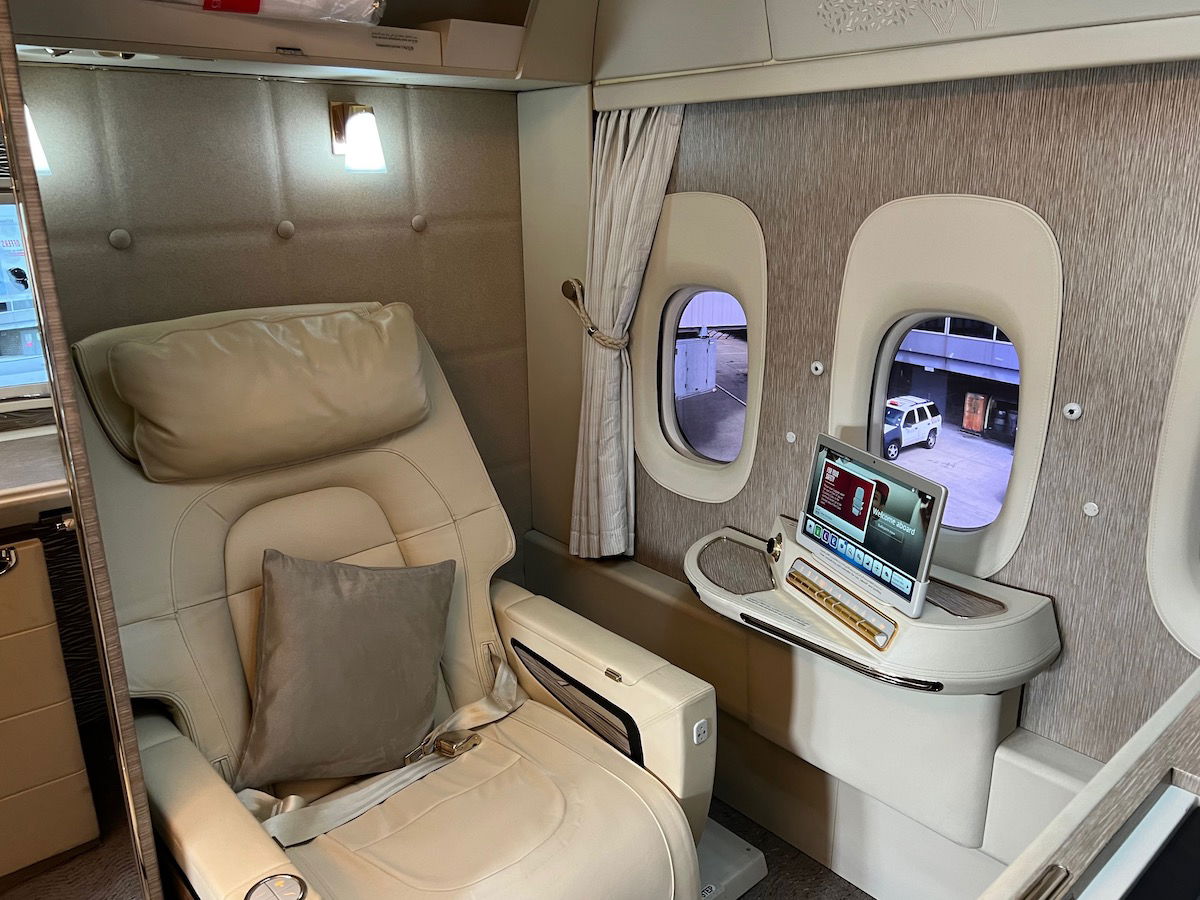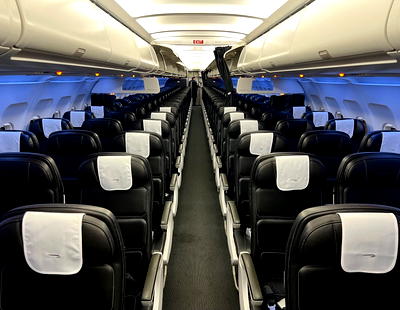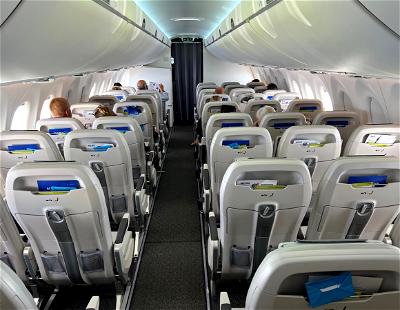Everyone takes a different approach to collecting miles & points. Some rack up points with a specific goal in mind, while others rack up points and almost view it as their retirement account, with no plans to redeem rewards anytime soon.
The issue, as we see all too often, is that loyalty programs tend to devalue over time. In this post I wanted to talk specifically about how you can best diversify your points and avoid devaluations, since this is an issue that many in the points hobby struggle with.
Below are some general thoughts on how to diversify your miles & points and avoid devaluations, in no particular order.
In this post:
Earn & burn, don’t view points as your retirement account
I think this is the single most important point I can make — whenever possible, always take an “earn & burn approach” to your points. All the time I hear from people who say “I’m earning points for retirement, and I look forward to redeeming them all then.”
Now, let me of course acknowledge that not everyone will always be in a position to redeem — maybe you can’t take time off work, or maybe there are other life circumstances. However, I absolutely can’t emphasize enough that I wouldn’t recommend viewing your points balance as a retirement account (well, unless you’re retiring shortly).
Why? Keeping points in an account in the long run is like keeping money in an account without accruing interest. It’s even worse than that, because odds are that your points currency has a higher inflation rate than most “real” currencies.
When you compare award redemption rates now to what they were a decade ago, in many cases you’ll find that award points requirements have gone up by over 100%.
Some might say “but I want to be able to travel when I retire.” That’s great, I’m all for that. The good news is that there are lots of opportunities to efficiently earn points, and those will (hopefully) still exist in retirement.
While points devalue over time, the great news is that it’s also easier to rack up points than ever before, in terms of how many points you can earn per dollar spent on credit cards, in terms of opportunities to buy points, etc.
So while the rewards you earned in the past are worth less now than they were then, there are still lots of amazing opportunities.

Earn transferable points whenever possible
While I do take an “earn & burn” approach, I will say that if I’m going to rack up points in the long-run, I always prefer for it to be transferable points currencies, whether those be points with Amex Membership Rewards, Capital One, Chase Ultimate Rewards, or Citi ThankYou.
Why do I feel more comfortable racking up transferable points without a short-term use?
- As the name suggest, the points can be transferred efficiently to various other airline and hotel programs, so you’re more shielded from devaluations than when earning points with a single program
- For several years now I’ve valued all major transferable points currencies at 1.7 cents each, unlike individual airline and hotel points currencies, where I’ve found the value to decrease over time; admittedly the same valuation doesn’t really help in keeping up with inflation, but it’s better than nothing
- Odds are that if you’re maximizing your travel credit card rewards, you’re earning one of these points currencies, so the points are also the easiest and most practical to rack up; this could be with cards like the Capital One Venture X Rewards Credit Card (review), Chase Sapphire Preferred® Card (review), Citi Strata Premier® Card (review), etc.

Shield yourself from devaluation with airlines & hotels
Admittedly many of us still earn points with specific airline and hotel loyalty programs. This can be through our natural travel patterns, because having a co-branded credit card makes sense, because we rack up points through third party activity, etc.
Of course I’m not opposed to collecting airline miles and hotel points, but I do make an effort to limit my balance in these programs at any given time. What are my considerations here?
- I try not to have more points in an individual account than I could realistically redeem for a couple of aspirational trips; that way if there is an advance notice of award pricing changes, I can book trips to get the most value from my points
- I try to focus on earning rewards with programs that can be trusted; this can include those that have a history of giving advance notice of pricing changes, and programs that publish award pricing, rather than having dynamic pricing (for example, programs like Air Canada Aeroplan and World of Hyatt)
- Be careful racking up points in a program that have a single award sweet spot; if that redemption is devalued, the whole reason you collected points may no longer apply (for example, redeeming Virgin Atlantic points on All Nippon Airways)

Be strategic about the points currencies you earn
There are so many huge credit card welcome bonuses out there nowadays, and it can be tempting to apply for just about all of them. The thing is, you still want to be strategic. Often I’ll hear from readers who have points balance with 10 different currencies, but don’t actually have enough points with any one program for it to be useful.
So, what’s the best way to handle this?
- The beauty of collecting transferable points is that they have many overlapping transfer partners, meaning that in many cases you could redeem Amex and Chase points toward the same redemption
- If you’re earning a specific airline or hotel points currency, I’d recommend having a general goal in mind, and then earning enough points to be able to redeem for that
You don’t want to be in a situation where you’re looking to visit Paris for five nights, and have 80,000 Hilton points, 30,000 Hyatt points, 100,000 IHG points, 40,000 Choice points, etc. (well, unless you want to change hotels every night).

Bottom line
Everyone’s strategy with miles & points will differ based on their own circumstances. In general, I highly recommend taking an earn & burn approach when accruing points, rather than viewing your rewards balance as a retirement account.
I try to mitigate the risk of any award program devaluations by accruing transferable points currencies whenever possible. If I am going to earn a specific airline or hotel points currency, I try to keep my points balance small enough so that I can redeem almost all of those points within several months in the event that there’s a devaluation.
What’s your strategy to diversifying points and minimizing the risk of points being devalued?





Paul Weiss ? Please Go away!
There's some logic to this approach. It's true that a fairly large number of employees in the USA earn extremely high salaries. The problem with those jobs is that employers typically expect their staff to work long hours, take few days off, and remain available for calls/emails even during their holidays. As a result, these people are typically cash-rich and time-poor, and that's why you don't tend to see the €1500 return transatlantic business class...
There's some logic to this approach. It's true that a fairly large number of employees in the USA earn extremely high salaries. The problem with those jobs is that employers typically expect their staff to work long hours, take few days off, and remain available for calls/emails even during their holidays. As a result, these people are typically cash-rich and time-poor, and that's why you don't tend to see the €1500 return transatlantic business class fares (or BA F for under €2500) pop up for ex-US tickets. In order to achieve 5cpm for that you would need to find a redemption for around 32k miles return (in business, across the Atlantic)- not happening.
That's why US-based airlines feel confident in devaluing their miles - they have unique access to that niche demographic (it's not about income/wealth in general; we are not talking millionaires and/or entrepreneurs who have unlimited leisure time, massive flexibility in work location and/or the means to travel by private planes).
Maximising the value of miles is relevant to those who don't belong to that group, because, regardless of your annual income or 'net worth', paying an extra €2000 to sleep in a coffin-sized dormí bed for six hours just doesn't feel like a good use of money.
That was meant to be a response to the Paul Weiss comment!
I've been involved in the points and miles hobby for nearly 15 years now and never understood the earn and burn strategy. I could never "burn" them as quickly as I earn them with my credit card spending through my business and by taking advantage of currently available SUB's as they come along. In most cases, by taking advantage of a current SUB offer, I could be eligible for that offer again in a couple...
I've been involved in the points and miles hobby for nearly 15 years now and never understood the earn and burn strategy. I could never "burn" them as quickly as I earn them with my credit card spending through my business and by taking advantage of currently available SUB's as they come along. In most cases, by taking advantage of a current SUB offer, I could be eligible for that offer again in a couple of years. On the other hand, if there is a devaluation, there's usually no increase in the SUB offers which would offset the devaluation. For example, if there is a current offer for 60,000 Alaska Airlines miles from BOA, I'll go for that now and bank the 60,000 miles, and in another two years, take advantage of another likely 60,000 SUB offer and have a total of 120,000 miles saved. If there's a devaluation which reduces the value of Alaska Airline miles by 25%, I'm still way ahead of the game, as opposed to taking advantage of the SUB offer only when I have immediate use for it.. And I don't think BOA would increase their SUB to 80,000 miles to offset the devaluation. In the meantime, I am now of retirement age and have accumulated a nice little nest egg portfolio through which I could essentially go anywhere anytime I want.
A previous article mentioning the 'retirement travel nest-egg' strategy helped me formalise a method from how I already managed my accounts but I wouldn't overreach and call it a strategy. I have the fortune (or misfortune) to live in a country where it is all but impossible to earn more than one airline mile/point per dollar on most credit card spending (but hey at least that's 1.5 per USD) and cash-back cards are rarely any...
A previous article mentioning the 'retirement travel nest-egg' strategy helped me formalise a method from how I already managed my accounts but I wouldn't overreach and call it a strategy. I have the fortune (or misfortune) to live in a country where it is all but impossible to earn more than one airline mile/point per dollar on most credit card spending (but hey at least that's 1.5 per USD) and cash-back cards are rarely any more lucrative. I collect points where I can and spend them as and when I can get above a reasonable return per point.
I then 'bank' the value of the flight or stay I've booked (somewhere between what I would have paid in cash and the actual cash price of the service booked), first in a spread sheet and when/if it mounts, in a dedicated savings account. I also add any cash bonuses I receive from any loyalty programs. This give me my own private stash of 'transferrable currency' to take advantage of airline points sale bonuses and discounts, which I happily do. It complements the one transferrable points currency account I have (Amex MR) and gives me the flexibility to buy points in programs that Amex doesn't offer in accounts here.
I've never been one to focus all my efforts on earning, and none on economy in managing and spending, and I see this 'effort' in the same light. Do I make some false steps? Of course, but that's life. If travel were to become too difficult, my nest egg is in the form of cash not in an airline program so I can opt out of the points race any time.
I have what I consider to be a fairly straightforward strategy. IMO, none of the airlines/hotels affiliated cards are worth putting regular spending on unless you need to spend to get your desired elite statuses (or something else valuable to you beyond those miles/points that you'd earn) in those programs. I have all the transferrable currency cards, with the exception of Wells Autograph Journey, and I choose one for each purchase to maximize earnings. I...
I have what I consider to be a fairly straightforward strategy. IMO, none of the airlines/hotels affiliated cards are worth putting regular spending on unless you need to spend to get your desired elite statuses (or something else valuable to you beyond those miles/points that you'd earn) in those programs. I have all the transferrable currency cards, with the exception of Wells Autograph Journey, and I choose one for each purchase to maximize earnings. I use transferrable points to top up my most frequently-used airline programs (about half a dozen of them and I keep low-to-mid six figure balance in each of them) when there're transfer bonuses.
Burning miles has become hard unless you are willing to waste them. For example, I have miles sitting with United earned from past trips, and I use those miles almost exclusively for int'l business class flights. Finding and booking such flights with miles on United has become almost impossible unless you're willing to spend 180k+ miles on a one-way. That, however, seems like a waste of miles, which leaves me to hunting down the few...
Burning miles has become hard unless you are willing to waste them. For example, I have miles sitting with United earned from past trips, and I use those miles almost exclusively for int'l business class flights. Finding and booking such flights with miles on United has become almost impossible unless you're willing to spend 180k+ miles on a one-way. That, however, seems like a waste of miles, which leaves me to hunting down the few and between available 'saver' flights (and even those are 100k-110k these days). @Ben what strategy do you recommend for someone with an accumulated pile of miles in one account that's hard to redeem as described above?
This is a totally excellent question. Not as easy to find good redemptions. Probably even worse when trying to redeem SkyPesos.
For sure... crazy I flew Polaris business class to Peru for 35k each way with United points. Now they've jacked up the price and it's impossible to get a good deal. I guess 88k business to Africa is still solid if you can find it.
This was only in 2021
180k+ miles isn't a waste, it's just (sadly) the price nowadays
You're all missing the points (pun ok?).
That's why you, or bloggers, give an assigned value.
If you value them at only international premium cabin on the saver point, then the valuation would be 6-8 cpm not the 1-2 range commonly associated. You make some worse redemptions, you make some good redemptions, it averages out.
But we can argue about this all year long right @DCS?
Unfortunately this is the bias you get from...
You're all missing the points (pun ok?).
That's why you, or bloggers, give an assigned value.
If you value them at only international premium cabin on the saver point, then the valuation would be 6-8 cpm not the 1-2 range commonly associated. You make some worse redemptions, you make some good redemptions, it averages out.
But we can argue about this all year long right @DCS?
Unfortunately this is the bias you get from blogs competitively bragging about sweet spot redemptions. And how you can too with xxxxx credit cards.
If you are able to spend few hours everyday searching and flexible travel schedule and destination, I'm sure you can get good value from your miles.
You made a few valid points, Eskimo. You are right about spending the time to look for good value and to be flexible. I absolutely redeemed points at amazing hotels for a good deal.
‘….can argue about this all year long…’ haha. Very funny.
My strategy is to take advantage of 20-40% transfer bonuses to get my accounts to enough to book one way or roundtrip for two people and the rest is sits in transferable points.
This month I'll reload my BA and Air France balances with 30% and 25% bonuses, respectively.
Waiting for Hyatt to offer 30% discount or 40% bonus again. Always try to wait for the best value in miles/points.
I agree. I hate speculative transfers but I use avois so much, Probably transferring at least 300k to British avois with the 30% bonus
Its important to remember that while points 'devalue', it is also easier and easier to earn points for the same trip. A $100 flight 8 years ago now costs $200, meaning you earn twice the number of points for the exact same trip. It only makes sense that points 'don't go as far' as they used to given how much easier it is to earn the same number of points.
I disagree. You got scammed by airlines and propaganda.
A $100 flight 8 years ago at 3 cpm run would earn me 3333+ 4166 elite bonus or 7500 at minimum.
A $200 today would get me 200x11 or measly 2200 mile.
That is over 3x less.
Consider award charts back then (maybe more than 8 years) that costs 1/3 of today.
That gives me 9x more value in the golden years. Just go ask @Lucky.
Also important to distinguish between price and value. The greedy hotelkeeper may have listed a price of $500 per night but that's not what the points are worth. The value is what YOU would have been prepared to pay for the hotel, maybe $200.
My strategy is no strategy. I collect the points that come in, and spend them however I see fit, without regard to silly metrics like cents-per-point. Why? I’d rather focus my time and energy on advancing my career to make money. The United States offers incredibly lucrative opportunities to those who are merely above average intelligence and are willing to give even half a sh!t about their job.
Wachtell Lipton pays a first year associate...
My strategy is no strategy. I collect the points that come in, and spend them however I see fit, without regard to silly metrics like cents-per-point. Why? I’d rather focus my time and energy on advancing my career to make money. The United States offers incredibly lucrative opportunities to those who are merely above average intelligence and are willing to give even half a sh!t about their job.
Wachtell Lipton pays a first year associate (age 24 if directly out of law school straight from college) $500,000. Cash.
Meta pays “senior” (4-6 years post-college) software engineers $500,000 in a mixture of cash and stock. The work hours are 9 to 5 with only a small amount of after-hours oncall.
At age 30 in the law, finance, tech industries, making over $1,000,000 a year is so common that, in desirable neighborhoods of top tier cities like SF and NYC, it doesn’t even put you in the “top 1%” that politicians love to go on about.
I need to reiterate you don’t have to be particularly intelligent for any of these jobs. Mere above average is fine. If you’re above average, then get a STEM PhD and work as a quantitative researcher making $30,000,000 in a single year when you are 29 years old.
Are you related to Tim Dunn?
I am not.
Huh? This is a travel blog.
Yes, and making money will allow you to travel. I operate under the assumption that the audience of this blog is interested in higher-end travel. Miles and points are one way to get there, but cash is king.
So instead of figuring out a miles-and-points diversification strategy or worrying about miles-and-points devaluations, just make more money, and you can buy whatever first class ticket or hotel suite you like.
Long story short, whatever you do, don't use those points that airlines and credit cards give you for every kilometre you fly and every dollar you spend, just ignore them and earn more money so you can pay cash. That's clearly what this whole blog is about.
This Paul Weiss guy seems to have come out of nowhere to flex and tell us how much money he makes. I always wonder why people feel the need to brag on blogs. He's becoming as annoying as Tim Dunn that I generally now skip any comment with his name
It's alright. Another easy one to ignore. Those of us who actually know these fields can identify full of malarkey comments like this easily. Reminds me of all the finance guys I know who brag endlessly about all the money in the field but have no concept of real wealth.
Kind of like the people who sport their LV, Gucci, Dior or Rolex. That stuff is just what poor people think rich people wear/ use/ buy
DC, if you know those types of "finance guys," that means your network is firmly middle tier, and you don't know what it's like at the upper end. Everybody, even poor people, know that LV and Gucci isn't actually wealthy. Your knowledge is many decades out of date.
this is the same dude who used to go by V10 Partner, no? gotta kind of admire the commitment to the bit, tbh.
This account is exhausting
Connor, your whine adds no value to the discussion. You’ve simply outed yourself as a complainer with nothing to add. Congratulations! Aren’t you proud of your little self. If you don’t want to see my comments, you can block them clientside in your web browser. If you don’t know how to do that, maybe learn? Instead of whining?
This is not a fair comment. WLRK and Paul, Weiss are not in the same universe of prestige. Getting a job at WLRK requires baseline eligibility of top 10% HYS or top 5% Columbia/NYU. And even then it's not guaranteed. Not sure what you mean that you only need to be "merely above average intelligence" for those kinds of opportunities. As for partners, it's more like 35 years old to get to the seven figure...
This is not a fair comment. WLRK and Paul, Weiss are not in the same universe of prestige. Getting a job at WLRK requires baseline eligibility of top 10% HYS or top 5% Columbia/NYU. And even then it's not guaranteed. Not sure what you mean that you only need to be "merely above average intelligence" for those kinds of opportunities. As for partners, it's more like 35 years old to get to the seven figure mark, rather than 30 years old. And for many others, more like 40. You're no longer young.
Basic large law firm compensation isn't that high: $250k starting. It's basically subsistence wages in the California/New York of today.
AJ, it doesn't take a genius to a high-end professional job. The overwhelming majority of people in these jobs, from first year to senior partner, are nowhere close to geniuses. It is just a grind. That is the point I'm making. A genius might score 180 on the LSAT on the first try, but somebody of merely above average intelligence can get close with a decent regimen of test preparation.
Those incomes are possible but the number of those jobs are limited so only a very small percentage earn that. Most people no matter how hard they work or how smart they are won’t earn that starting out or even in peak earning years. Your point about not worrying so much about maximizing redemption values is valid but you exaggerate about job potential for most. Not everyone can be a doctor or lawyer.
Paul totally reminds me of that Endre guy who would talk about how he would only pay for first class and never redeem points. You can totally pay for it using cash but what is the point of reading this blog? Is it merely just to comment/brag/show off/or pretend how much money you have or how much you know? OMAAT is a miles/points blog and I surely have not seen Lucky telling us to pay cash for a roundtrip SQ full fare first class flight.
Stanley, don't forget this blog is also a source of information on the actual product you are buying--the seat, the food, the service.
I have never commented, bragged, or showed off how much I made. For all you know I may be a Billionaire.
Meta isn't paying people with 4-6 yoe half a million. And they work more than 9-5
For all we know Tim Dunn could be Elon Musk's bipolar persona.